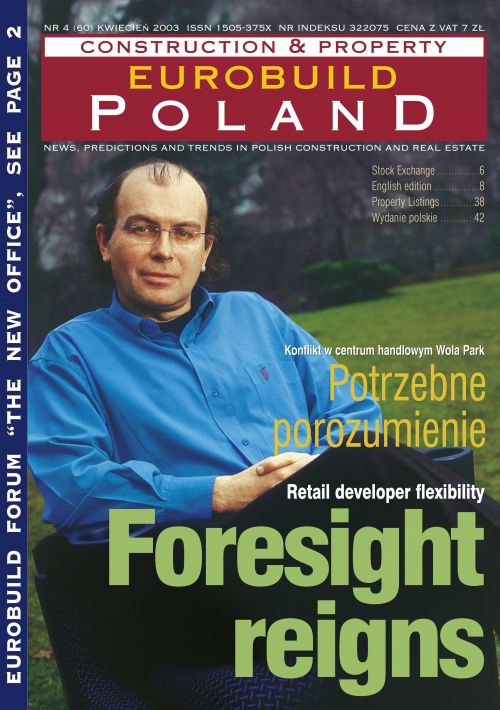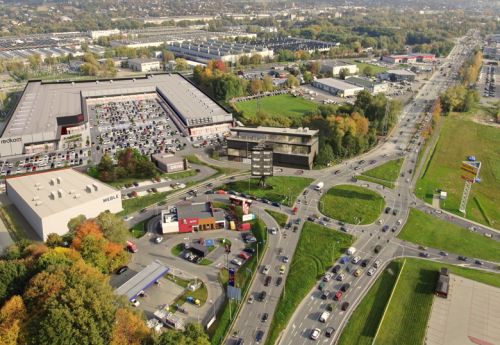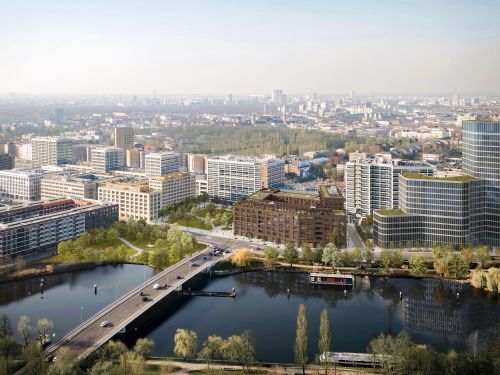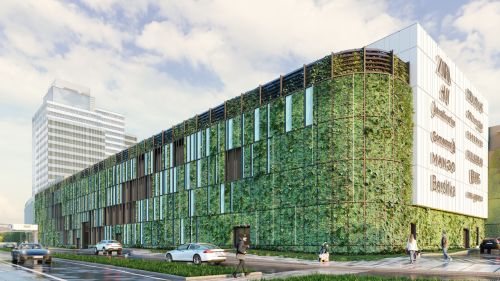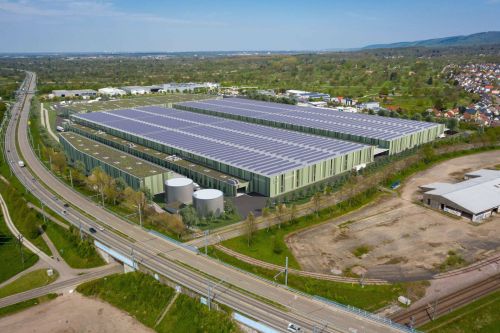Foresight reigns
It takes a dozen or so months to acquire a plot, all the necessary permits and complete the designs for a project. Depending on its size, construction may last from several months to almost two years. In the meantime, the market evolves constantly and it may turn out that the finished product won't attract any interest. Can a developer respond to changes in market trends during the design stage?
Most who responded to our questions were unanimous in agreeing that a developer's flexibility is one of its most vital qualities. Some, such as Zygmunt Hyla of TK Polska Operations, (the developer of Warsaw's Targówek and Reduta shopping centres and the soon to be launched Galeria Pomorska in Bydgoszcz), however, wouldn't comment, claiming that a firm's adaptability is central to its know-how and not for the prying minds of its competitors.
Three stages
Financing development projects can be divided into three stages: firstly, that
of land acquisition, secondly, obtaining the necessary permits and preparing the
architectural and executive designs, and thirdly, the costs of construction.
The ideal solution from the point of view of a developer is to finance the first
two stages from his own pocket, and only at the last stage use bank credit. Why?
Within your means
"When a bank finances a whole project, it is very difficult to change
anything, even before starting construction. Credit is given for very precise
goals and if these change, the bank can ask you to pay all the money back,
meaning the developer will have to try and take out another loan from elsewhere.
He will then lose time and money because it takes at least six months to get
another building permit," says Marc Lebbe, Managing Director of Liebrecht
& wooD.
Liebrecht & wooD invariably finance the first two investment stages with
their own money. This developer, known till now only for their office and
warehouse schemes, have now decided to diversify their portfolio and invest in
the retail market. To this end they have set up The Outlet Company to build
factory outlets in Sosnowiec, Gdańsk and Warsaw. Indeed construction is about
to begin in Sosnowiec.
"Developers who finance the two first phases of a project from their own
equity can be a lot more flexible. They can modify the project even if they need
more time and money. They can wait before starting new projects, after they've
acquired sites, until the situation on the market is better. They don't earn
money for doing nothing, but then they don't lose out either," says Lebbe.
He also claims that: "if developers are weak, the prices of their products
fall. If they depend on bank loans they cannot wait before introducing their
products to the market, so sometimes they have to lower prices to pay the bank
back".
Patience not frustration
Plaza Centres Poland has developed three retail centres around the country. In
2000, Sadyba Best Mall was launched, followed by Kraków Plaza, and then a
retail centre in Rybnik in 2002. The first two accommodate about 150 shops and
the latter approximately 90. Entertainment zone operators are the key tenants in
all of these enterprises and supermarkets take up around 10-11 per cent of the
space.
"A developer has the option of altering his project but this is a
complicated and costly process, because with every change, a new construction
permit has to be applied for," says Eyal Inbal, Director of Leasing at
Plaza Centres Europe, PCP's mother company. This is because the law isn't quite
investor-friendly.
According to Eyal Inbal, investor flexibility doesn't necessarily have to be
reflected in an ability to make alterations to projects. In his view, one can
also be flexible by extending schemes (PCP are considering adding to the retail
section of Sadyba Best Mall), or postponing other investments, despite perhaps
owning attractive plots, such as PCP's in Radom, which will remain undeveloped
until 2004-2005, because of the strong competition from hypermarkets in the
city.
Turning 180 degrees
Portico Development have been active on the Polish market since 1992 and have
specialized in developing cinema multiplexes, with Silver Screen as their
operator and key tenant.
They had similar plans for a centrally-located building in Gdańsk, on the
corner of ul. Rajska and ul. Heveliusza, which was to house a multiplex cinema
and a small retail centre originally. Though the first stage began in 1997, the
scheme was eventually put on hold, according to Portico, because the attention
their other commitments in Gdynia, Łódź and Warsaw demanded. Now however,
they are ready to invest in Gdańsk but in an office building not a cinema. Why?
"A lot has changed in Gdańsk since the start of that project, another
multiplex cinema has since appeared several hundred metres away and a retail
centre is being built virtually across the road," says Robert Pawlak of
Portico Development. "This is why we've decided to change our concept and
build a modern office building, the Baltic Corporate Centre, instead."
On its six floors, BCC will consist of 20,000 sqm of leaseable space. The
original architectural design by Andrzej Kapuscik will not, however, undergo any
major changes despite the building's entirely new function, though the project
is being managed along with Apollo-Rida, as Portico have no experience
developing office space. The building is being built with a certain type of
tenant in mind and so construction will begin just as soon as there are enough
clients. "Our construction permit is valid until the end of 2003,
construction shouldn't last longer than 13 months, and the cost of the whole
investment should be no more than USD 20 mln," says Pawlak.
When not to change?
Developers do not begin constructing retail units until the number of signed
pre-leases reaches a certain level. Eyal Inbal of Plaza Centres Poland claims
that, depending on the size of a city, a building must be between 30 to 50 per
cent leased. For instance, in Sosnowiec Outlet Centre, 47 per cent of the retail
space had been leased before construction began. This is however, exactly when
it becomes difficult to modify schemes, because if an entertainment centre was
to be present, where a supermarket was originally planned, some 'pre-leased'
tenants might not be altogether pleased.
























